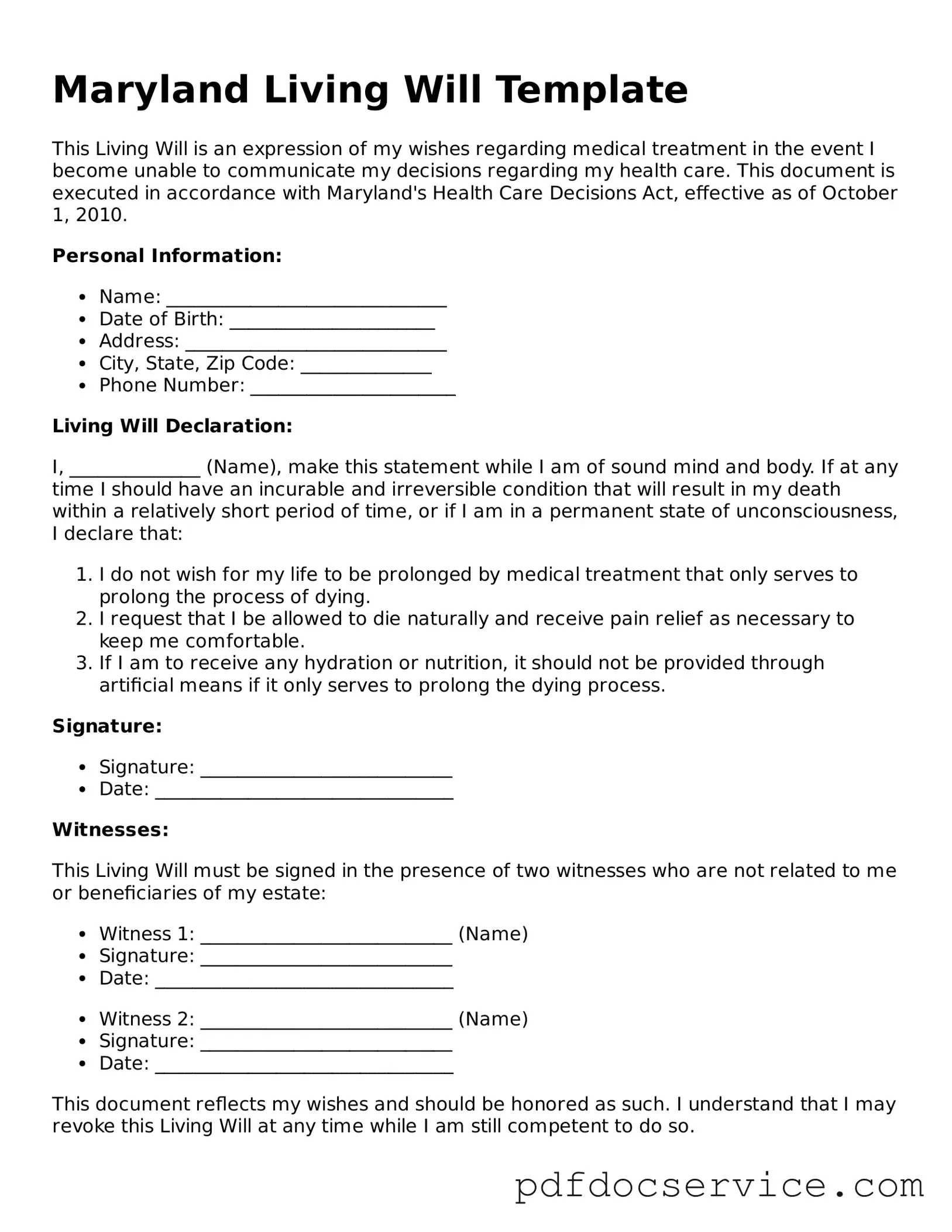Printable Living Will Template for Maryland
A Maryland Living Will form is a legal document that allows individuals to outline their preferences for medical treatment in the event they become unable to communicate their wishes. This form plays a crucial role in ensuring that a person's healthcare decisions are respected and followed. By specifying their desires regarding life-sustaining treatments, individuals can provide clarity for their loved ones and medical providers during difficult times.
Open Living Will Editor

Printable Living Will Template for Maryland
Open Living Will Editor

Open Living Will Editor
or
Get Living Will PDF
Finish the form now and be done
Finish Living Will online using simple edit, save, and download steps.